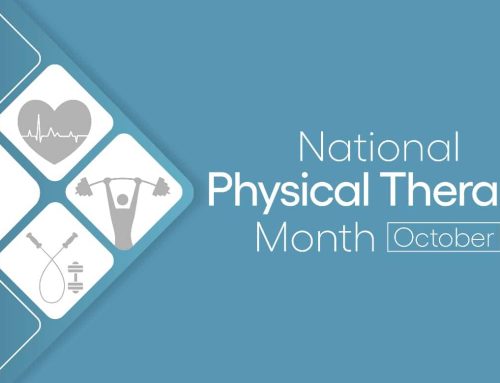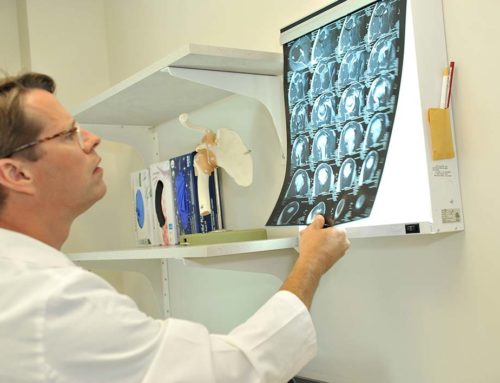A number of the physicians at Cary Orthopaedics specialize in treating orthopaedic workplace injuries that involve workers’ compensation claims. We have an efficient process to provide quality patient care while coordinating with adjusters to satisfy workers’ compensation insurance requirements. Keep reading for what to know about workplace injuries.
The Bureau of Labor Statistics found that 266,530 injuries involving sprains, strains and tears occurred in 2020. Here are the most common orthopaedic-related on-the-job injuries and helpful hints on how to prevent them:
- Overexertion injuries
- Repetitive motion injuries
- Reaction injuries
Overexertion injuries
Overexertion injuries, the most common workplace injuries, can occur when you push your body past its physical limits. Overexertion injuries are the second leading cause of missed work after the common cold. Back injuries are most commonly reported in workplace injuries and illnesses.
Overexertion injuries come from lifting, pulling, holding, carrying, throwing or pushing. Many companies provide on-the-job training and education to help employees perform physical tasks safely.
Follow employer guidelines and safety standards to prevent overexertion or other work-related injuries and illnesses. Here are additional tips:
- Use proper lifting techniques
- Lift lighter loads
- Take breaks from challenging tasks
- Lower the distance you have to stretch to lift a heavy object
- Add stretching and strength training to your exercise regime
- Know your body’s limits and stop work when necessary
Acute overexertion injuries need treatment before you can return to the task that caused the injury. Rest, heat or ice and anti-inflammatory medicine can help ease the pain. See your orthopaedic spine physician or general orthopaedist for treatment of severe or chronic injuries.
Repetitive motion injuries
Repetitive motion injuries are a very common workplace injury for many adults. Continued repetitive motions, like keyboard typing or assembly line work, can strain the muscles and tendons in the hands and wrists. This can lead to carpal tunnel syndrome, which can become a long-term issue if left untreated. This type of injury can become painful and worsen over time.
Use these tips to prevent or reduce the effects of carpal tunnel:
- Take periodic breaks from repetitive motion work
- Set an alarm every few hours to take a 2 to 3-minute break
- Pay attention to correct form when typing or working with machinery
- Practice proper spinal posture
- Perform hand and wrist exercises
- See your orthopedic doctor to see if a wrist or hand brace would be appropriate for you to wear while working
See an orthopaedic specialist if hand and wrist pain continues. Seeking treatment sooner rather than later will help prevent the injury from becoming chronic.
Reaction injuries
Reaction injuries resulting from slips, trips, falls, sitting, bending or reaching is common in the workplace. This type of injury may seem minimal but can become an issue if ignored.
A sudden twisting motion can cause orthopaedic injuries, such as meniscus tears, strained necks, and pulled back muscles. To prevent reaction injuries in the workplace, keep these tips in mind while on the job:
- Pay attention to your surroundings
- Maintain a clean and tidy work area
- Put all tools back in their proper place after use
- Avoid awkward body positioning and bad posture
- Use non-slip floor coverings
Workers’ compensation for workplace injuries
If you are injured on the job, your employer may provide workers’ compensation benefits. However, it depends on the type of injury. If you plan to file for workers comp, you should be evaluated by a medical professional.
Your employer or their insurance company will advise you on where to receive a medical evaluation. If you choose a doctor different than your employer recommends, you will need approval. Your workers comp case manager must complete and accept the approval before your appointment.
You receive weekly payments after your claim is approved. Workers receive 66% of their weekly salary until they are able to return to work.
Our workers’ compensation specialists can help you coordinate care with your case manager or adjuster. We can obtain the necessary appointment and diagnostics authorization and facilitate easy scheduling, communication and documentation.
Experienced workers compensation orthopaedic physicians
If you or a loved one have experienced an injury in the workplace, seek medical help immediately. Cary Orthopaedics’ specialists have years of experience treating orthopaedic workplace injuries, providing the highest quality care. If you have a workers’ comp claim, have your case manager contact us.






